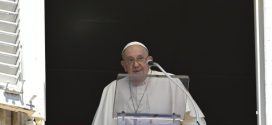Antelias, March 9, 2005
In this historical turning point through which Lebanon passes, the mass media, in its different kinds and orientations, assumes a historical role as important as the political leadership role, and even more because it addresses the audience conscience and the public opinion toward the national unity, as it happened in the media covering of the assassination of the Prime Minister Rafik Al Hariri and his companions and its consequences, and which joined the Lebanese in feelings and destiny. The World Forum of Professionals in the Secular and Religious Media (UCIP Liban), when saluting the major national role of mass media, considers that this period needs a particular attention to the main incontestabilities on which its media mission is based.
This mission includes the following:
1- The freedom and truth are inseparable: defending individual and social public freedoms, and defending media freedoms which are in the basic constitution of Lebanon, are the duty of every citizen, because there is no truth without freedom. Thus, we consider that the critics of the Prime Minister Omar Karamé to the Lebanese press in the last days constitute a treat to the most important characteristic of the free and democratic Lebanon, and unjust accusations which oppress the Lebanese authority as much as it oppresses the Lebanese press.
2- The sovereignty: the Lebanese press can not be but in favor of the national sovereignty and of the independence by which it collaborates in constituting a public opinion moving in that direction. Lebanese press has, since always, played a major role in achieving the independence of the nation, and carried on important combats in the face of the Ottoman occupation and the French mandate for this sake. Thus, no authority can prevent its role.
3- The coexistence: the press is able to symbolize the national coexistence through its objectivity, to reveal the common values, and to moderate the disagreements in the point of view which may occur between the constituents of the country. What is clear today by the national unity in the different movements’ positions collaborates in establishing a new Lebanon; the press shall highlight it in order to reveal the common denominators agreed on by all Lebanese.
4- The civil peace: the Lebanese paid a high price in consecutive wars and lived big tragedies caused by the war. Thus, the civil peace is primordial, the press shall protect and spread it, emphasizing on the principles of dialogue, opinion freedom and peace culture.
Once again, Lebanese mass media prove its worthiness in the mission it carries with high responsibility and professional aptitude. The best of what we have concreted in this crucial situation may be symbolized by the Lebanese youths’ aim aspiring to a free democratic country reflecting people’s hopes, whatever are their religion, confession and political orientations, in a modern state which guarantees a safe and brilliant future, a future being at the hands of institutions able to provide the biggest amount of hope and expectation to ascending generations.
Translated by: Joyce Tary


 الاتحاد الكاثوليكي العالمي للصحافة- لبنان اوسيب – لبنان
الاتحاد الكاثوليكي العالمي للصحافة- لبنان اوسيب – لبنان




